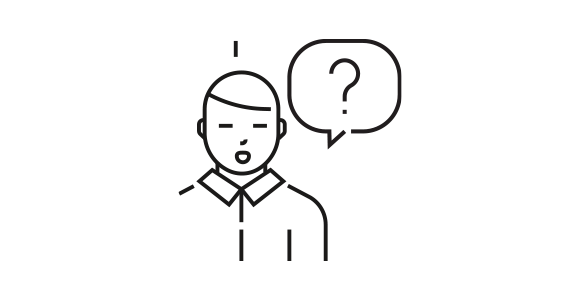A good discussion
Associate Professor in Media Studies at the University of Southern DenmarkGo wrong in a discussion
Associate Professor in Media Studies at the University of Southern DenmarkWhen you set out to write your discussion, it’s important to:
- Demonstrate that you can interpret and understand the knowledge you have gained from your analysis.
- Convince your reader that your understanding of the results of your analysis is academically acceptable.
- Through the discussion, arrive at an academic answer to your research question.
FAQ about the discussion
First and foremost, you need to show that you are able to use some of your subject’s theory and methodology to put your analysis results into an academic context.
Example
You have observed five children playing on a trampoline. In your discussion, you assess their play through Helle Skovbjerg’s theories on play practices, noting that the children’s playing changes from rhythmic to accelerated. In the discussion, you come to realise that Helle Skovbjerg’s theories can also be applied when looking at the children play on the trampoline.
You can discuss anything that is of academic interest in your assignment.
Most people discuss the results of analyses
Typically, this will be a discussion of how the results of the analysis should be understood.
Does it make sense to discuss your choice of methods and object of analysis?
It can also be a discussion of the suitability of the method, or what would have happened if you had used a different method or if you had expanded your object of analysis.
A good discussion uses knowledge from the analysis to find answers and argues academically for the answers. A good starting point for a fruitful discussion is therefore often a thorough analysis.
The academic element really lies in the discussion
It’s in the discussion that the academic element really exists. This is where you demonstrate your ability to use academic knowledge and methods and combine them with your analysis results.
Find the contradiction in your discussion
A really good discussion often contains an element of contradiction. The contradiction can arise if, for example, you have two theorists who claim different things about your object of analysis.
Incorporate the research of others
To substantiate your interpretations, you may want to include other researchers’ studies, surveys and perspectives in your discussion. For example, someone else may have looked at the same object of analysis as you but used a different method. This is worth discussing.
No, not really.
You can easily argue that there is no clear understanding of your analysis results. In fact, there are major caveats to most answers in academic papers. After all, you never know if there are studies out there that show the opposite.
Yes, you may.
Keep an eye on the hierarchy of authority
You’re welcome to use knowledge to boost your argument as long as you make sure it comes from the academic hierarchy of authority. This means, for example, that it must be knowledge that has been through academic assessment and that it is available in scientific databases.
Should it be included in the theory section?
If the knowledge you want to use turns out to be a common theme in your assignment, it may need to be presented in the theory section.
Stay focused on the research question
However, it’s always a matter of balance how much new knowledge you need to introduce. You still need to stay focused on your research question.
Probably not.
In my opinion... I think that
It’s not your job to think or opine in an academic assignment. What matters is your academic knowledge.
It’s the knowledge of others that matters
It’s about using the academic knowledge of others to try to understand the results of your analysis. When trying to understand your analysis results based on other studies or understandings, you need to be able to refer to the knowledge you are using.
Your own knowledge from previous assignments
You can bring your own knowledge from previous assignments into play, and you can also refer to it correctly. That being said, this is knowledge that the external examiner cannot verify because it is not available knowledge. Therefore, you demonstrate a greater academic overview by referring to, for example, other people’s studies instead.
Not always.
But does it make sense to discuss your methodology?
If you believe you can demonstrate a sound ability to reflect on your choice of methodology, it’s a good idea to include it. After all, you speak with a clear academic voice when assessing your own approach to the assignment.
Checklist for the discussion
- Does your discussion show that you have understood your theory and methodology?
- Are you applying your theory and methodology to your object of analysis?
- Do you include knowledge from other scientific sources to inform your discussion?
- Does your discussion answer your research question?
- Do you refrain from having your own thoughts and opinions?
